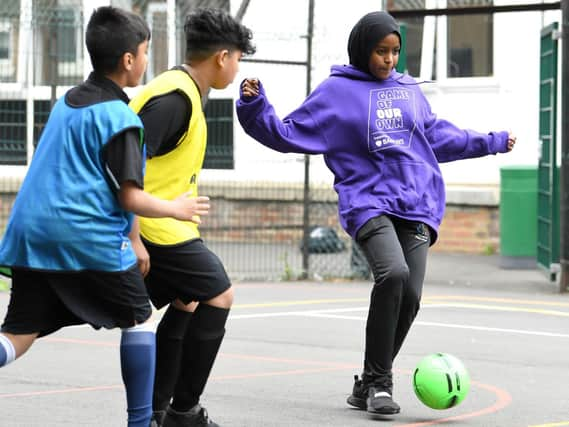School sports are so important for building mental resilience - Charlotte Armitage


I know I was incredibly lucky to have been able to attend sports day this year and I’m aware that many missed out on that opportunity.
But as I watched the sports day activities this year, I couldn’t help but feel it was an outdated tradition that favoured those who were sports-orientated whilst undermining those who weren’t.
Advertisement
Hide AdAdvertisement
Hide AdMost schools don’t consciously place a value on sports day, but it is the unconscious impact that concerned me the most. As I watched the same children win every race, I also witnessed the same children struggling to make it to the finish line each time, which was painful to watch.
I couldn’t help but wonder what the psychological impact of days like this has. At the risk of sounding like a snowflake, for those children who don’t excel at sports, what does it do to their self-confidence, self-esteem and attitude to physical activity?
Defining success in terms of physical activity alone sets many children up for failure which may impact their overall confidence and can have ramifications for how they perceive their abilities in other aspects of school life. All children have strengths, whether that be in maths, science, art, English, drama, music, emotional intelligence or sports.
Yet only those who excel in sports are able to showcase their talents each year in a competitive nature.
Advertisement
Hide AdAdvertisement
Hide AdI’m certainly not suggesting that sports day should be scrapped, rather that there should be a variety of competitive activities such as: sports day, a talent show, a spelling bee, science and maths competitions for example. This would enable all children to experience working in a competitive environment, under pressure whilst experiencing success and failure equally.
This opportunity to succeed and fail is an important developmental process because we know that experiencing failure is a vital component in the development of psychological resilience.
Competitive activities are necessary because they replicate many situations that are commonplace in adulthood.
What we don’t tend to find in adulthood is people participating in activities that they are terrible at and don’t enjoy.
Advertisement
Hide AdAdvertisement
Hide AdThere is certainly something to be said for learning to participate in an activity simply for the enjoyment alone, even if one is not skilled at that particular activity, but the confidence to be able to do that comes from an internal strength and resilience which is borne out of knowing that we are competent and capable in other aspects of our lives.
Replicating this within the school environment may provide a good opportunity for children to experience an equal amount of success and failure which will essentially result in more useful development processes.
By providing a variety of competitive opportunities in different subject areas, everyone can have the chance to be the rock star in their chosen field. Confidence is fundamental to the learning process and being able to try and fail takes confidence. As such, we need to encourage that amongst all children across a multitude of activities.
Charlotte Armitage is YAFTA's Managing Director & a Media Psychologist